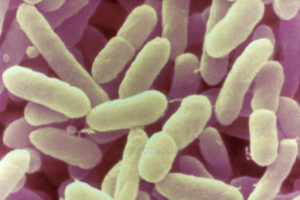

Designed to address the increasingly complex compliance needs of stakeholders in the food industry, FSMA 204 Food Traceability Solutions combine FSMA 204 audits, training and the TRAKKEY digital traceability platform

Designed to address the increasingly complex compliance needs of stakeholders in the food industry, FSMA 204 Food Traceability Solutions combine FSMA 204 audits, training and the TRAKKEY digital traceability platform

In the dynamic and complex food industry landscape, the role of a food safety consultant is crucial. They provide expert guidance, advice, and assistance to ensure food safety, hygiene, and compliance with industry standards and regulatory requirements.
Q&A with Evan Reyes, Global Director of Sales, Sanitation Division, Goodway Technologies

Many food suppliers are investigating and making early investments in the adoption of digital technology to aid and automate their food safety programs. One area of intense interest has been the increasing application of digital automation within food safety testing programs.

The number of food alerts related to plant toxins, including pyrrolizidine alkaloids (PAs) and tropane alkaloids (TAs), is increasing. Fortunately, new liquid chromatography with tandem mass spectrometry testing methods enable more accurate and efficient detection.

The recent large scale recalls of infant formula and resulting nationwide shortages highlighted the risks of Cronobacter in vulnerable populations. Sally Powell Price, Regulatory Expert Food and Beverage Safety at MilliporeSigma, which is the Life Sciences business of Merck KGaA, Darmstadt Germany in the U.S. and Canada, and Andrew Lienau, Food Regulatory and Validation Senior Expert at MilliporeSigma, discuss the risks of Cronobacter infection, a new testing assay that offers more rapid results, and coming changes to the regulation of infant formula due to growing concerns surrounding the dangers of Cronobacter.

Food organizations are undertaking a wide variety of data-oriented technology initiatives and face a profusion of technology solutions vying for attention, nearly all promising new levels of insight and productivity. While the landscape is complex, there are five basic steps that teams can take to help ensure that their technology investments are set up for long-term success.

Different segments of the food industry have specific needs, whether it’s unique spoilage tests or specialized predictions based on distinct data. Unfortunately, current services haven’t delivered a trustworthy solution for these needs. Incorporating AI-powered systems and molecular testing can effectively address these needs.

With food safety as a top priority for your business, keeping all pests out should also be top of mind. Stored product pests are tiny insects that can quickly damage your products and lead to lost profits. Glen Ramsey, board-certified entomologist and Director of Technical Services for Orkin, explains how facilities can keep stored product…

Food companies have to manage a variety of pests seeking harborage, food, water and other resources in their facilities. Among these pests, flies can be some of the most difficult to manage. Frank Meek, technical services manager for Orkin and board-certified entomologist with 36 years’ experience in the food industry, shares strategies to you can take to mitigate the risk of flies in your food facility.